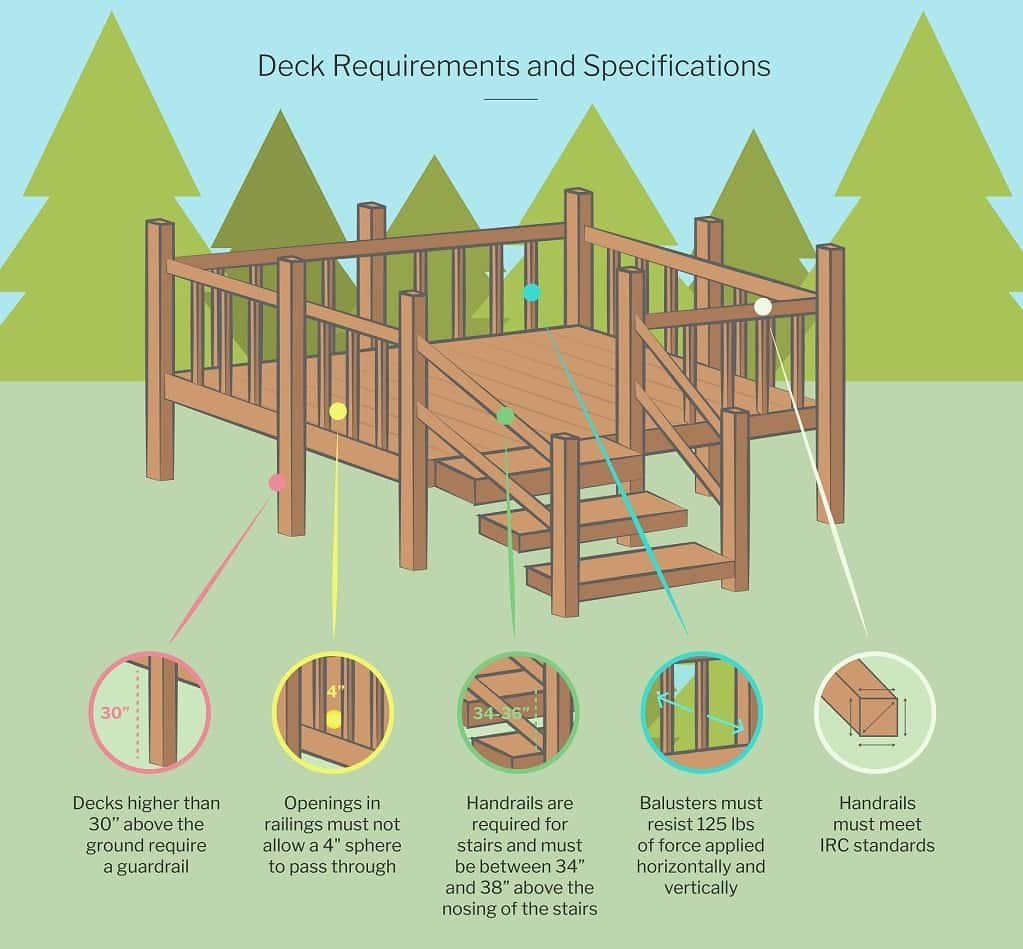Are you an Atlanta homeowner planning to build or renovate a deck? Prioritizing deck safety and adhering to local building regulations is essential for protecting your family, guests, and the longevity of your investment. Here’s what you need to know to create a safe and compliant outdoor space.

Deck Safety Regulations in Atlanta
Atlanta, like many cities, has strict building codes and regulations that guide deck construction. These rules are designed to prevent structural failures and ensure your deck is safe for everyone. Some critical aspects to keep in mind include:
1. Maximum Height
Deck height regulations ensure safety, especially for elevated structures. Exceeding the allowable height without proper reinforcements can increase the risk of accidents or structural instability.
2. Railing Requirements
Railings are a crucial safety feature. Atlanta regulations specify minimum railing heights and maximum spacing between balusters to prevent falls, especially for children and pets.
3. Material Quality

Deck materials must meet durability and load-bearing standards to handle local weather conditions and regular use. Using subpar materials can lead to premature deterioration and safety hazards.
4. Permitting
Most deck construction projects require building permits. These ensure your deck meets the city’s safety codes and is inspected at critical stages of the build.
Inspecting Your Deck for Safety Issues
Regular inspections are vital, particularly for older decks that may have endured years of wear and tear. Focus on these areas:

1. Wood Rot and Decay
Examine all wooden components for signs of rot, decay, or insect damage, which can weaken the deck’s structure.
2. Loose Connections
Check all fasteners, including bolts and screws, to ensure connections between the deck and house are secure.
3. Railing Integrity
Inspect railings for loose posts, unstable balusters, or damage to the top rail.
4. Stairway Safety

Assess stairs for uneven steps, loose or missing handrails, and signs of wear or damage.
5. Footings
Ensure the footings are stable, with no signs of settling or erosion that could compromise the deck’s foundation.
Installing a Deck Railing: A DIY Guide
While complex projects are best left to professionals, installing or replacing a deck railing can be a manageable DIY task. Here’s a step-by-step guide:
1. Plan the Layout
Decide on the railing design and mark where each post will be placed.
2. Install the Posts
Securely attach the posts to the deck frame or ground, ensuring they are plumb and stable.
3. Attach the Top Rail
Fasten the top rail to the posts, making sure it’s level and firmly secured.
4. Install the Balusters
Attach the balusters to the top and bottom rails, spacing them according to safety requirements.
Partner with Experts for Your Deck Needs
Not sure where to start with your deck project? Whether you need help with inspections, repairs, or construction, IO Construction is here for you. Our experienced team specializes in building safe, compliant, and stunning decks tailored to your needs.
Contact IO Construction today to bring your dream outdoor space to life—safely and professionally.
